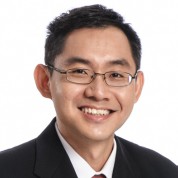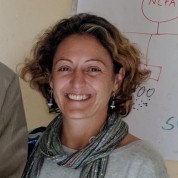WS302
Building Systems to Cope with Future Trends
Contact Person : Yik Ying Teo, ephtyy@nus.edu.sgChanges in population demography come with opportunities and challenges. The projected growth of global human population to 10 billion by 2050 and to 12 billion by the end of the century is expected to exert unprecedented pressure on human and ecological systems, increasing the demand on energy consumption, animal-based foods, global mobility, and the near universal penetration of the “internet of things”. This immense pressure can also be felt in the ecological and climate shifts arising from the relentless exploitation of natural resources, increasing the risk of fragile and failed systems worldwide. However, the world continues to address these demand increases in a unilateral manner, overlooking the interconnectedness of systems and the resultant impact. A clear example is the threat to Global Health Security from the relentless demand growth, where global mobility propagates the specter of emerging and re-emerging infections to all parts of the world, threatening food and medical supply chains, destroying economies and livelihoods, as well as disintegrating equity, trust and social capital in communities and societies.
At the heart of the response to these looming perils is the need to build systems that are integrated, interconnected and information-driven. The ability or inability for global communities, governments and health systems to respond during a crisis is a direct function of the investments and preparations made during “peace time”. Rapidly-convened systems to handle emerging national and global threats rarely address fundamental issues such as equity, efficacy and efficiency.
For a start, the role of public policy making has to be grounded in evidence and science, particularly in the implementation and behavioral sciences to understand the impact and acceptability to individuals and communities. Partnerships between government, academia, industry, and civil societies necessarily sit at the core of a system-level approach to preparing and finding solutions for present and future crises.
This session aims to outline the building blocks of a systems-level approach to forecast and tackle challenges that emerge as a result of shifting trends, going beyond the health system to a whole-of-government and whole-of-society systems approach. The thesis will focus on: (1) how will trust and social capital between governments and people be built during “peace time” in such systems, to increase the resilience of the entire system in a country to disruptions due to a national crisis? (2) how can public policies be made using a systems-level consideration that integrates information and insights from academia, civil societies, government and industry to ensure equity, efficacy and efficiency? (3) how will the advent of “internet of things” solutions protect the paradigms of confidentiality and privacy, especially when communal benefits during a crisis may be perceived to trump individual liberties? (4) what is the role of systems-level public policy making for averting known and looming crises, such as increasing climate resilience at both national and global levels?
PANELISTS
Biosketch
Dale Fisher
Diarmid Campbell-Lendrum
Fernanda Zermoglio
Mary Amuyunzu-Nyamongo
Supreda Adulyanon
Yik Ying Teo
Presentation
Adulyanon_PPT.pdf
Amuyunzu-Nyamongo_PPT.pdf
Campbell-Lendrum_PPT.pdf
Zermoglio_PPT.pdf







